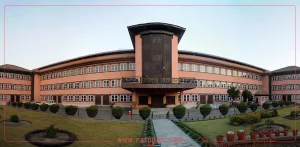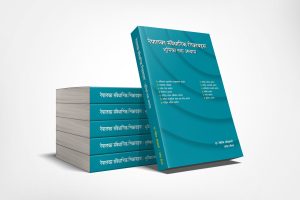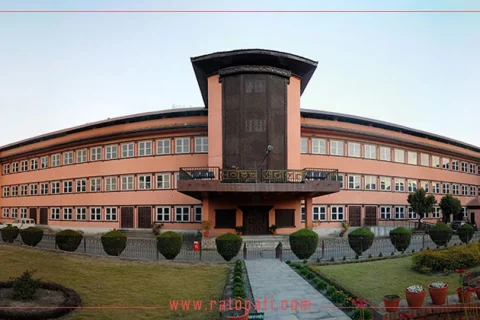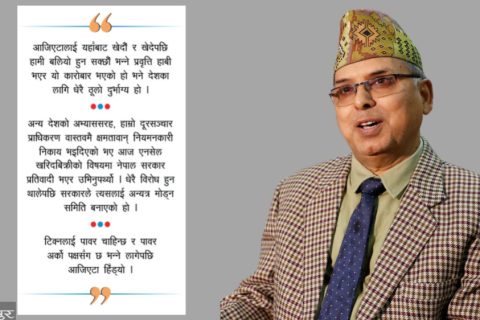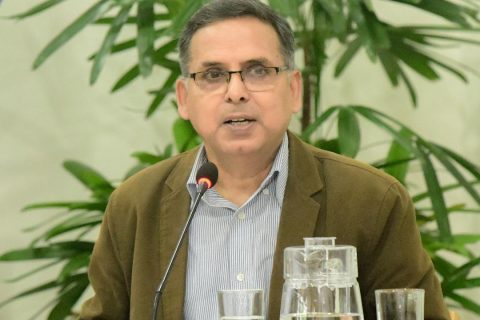Legal experts have divided opinions and interpretations of the constitutional provisions.
The foundation of the current government under Nepali Congress President Sher Bahadur Deuba was laid on May 21 last year when 149 lawmakers from different parties submitted their signatures to President Bidya Devi Bhandari.
Though Bhandari refused to appoint Deuba as the prime minister under Article 76 (5) 0f the constitution, the Supreme Court on July 13 directed the President’s Office to appoint him, saying he had the support of a majority of lawmakers in the 271-strong lower house.
Deuba was backed by the Communist Party of Nepal (Maoist Centre), then Madhav Kumar Nepal faction of the CPN-UML, then Upendra Yadav faction of Rastriya Janata Party, and Rastriya Janamorcha. The Nepal faction now has formed the CPN (Unified Socialist).
Deuba’s is a coalition government of five parties.
But seven months after the formation of the government, the coalition partners are at odds over the tabling of the Millennium Challenge Corporation-Nepal Compact for parliamentary ratification. The compact is a $500 million grant from the United States for electricity transmission lines and road maintenance in Nepal.
The Maoist Centre on Wednesday threatened to pull out of the government if the MCC compact was tabled in Parliament. Deuba delayed his plan.
If the Maoist Centre, which has 49 seats, withdraws support, the Deuba government will slide into a minority.
There is no clarity as to what will happen next. Constitutional and legal experts have different opinions and interpretations of the constitutional provisions.
A general assumption is that if the Maoist Centre withdraws its support, Deuba must take the vote of confidence within 30 days from the date the support is withdrawn.
Article 100 (2) of the constitution says if the political party which the prime minister represents is divided or a political party in the coalition government withdraws its support, the prime minister shall table a motion in the House of Representatives for a vote of confidence within 30 days.
“The government will continue if the prime minister wins the vote of confidence,” Mohan Acharya, a constitutional lawyer, told the Post. “Otherwise, the lower house will be dissolved automatically.”
Acharya’s argument is based on Article 76 (7).
It says in cases the prime minister fails to obtain a vote of confidence or the prime minister cannot be appointed, the President shall, on the recommendation of the prime minister, dissolve the House of Representatives and appoint a date of election so that the election to another House of Representatives is completed within six months.
Deuba was appointed prime minister under the last of the constitutional provisions for the election of a prime minister.
“Article 76 (5) came into play after all other options for the government were exhausted,” said Dinesh Tripathi, a senior advocate. “Dissolution of the lower house and fresh elections will be the only option left if Deuba fails a vote of confidence after withdrawal of the support by any of his coalition partners.”
CPN-UML chair KP Sharma Oli became prime minister in February 2018, as per Article 76 (2) which envisions a coalition government. His government turned into a majority government as per Article 76 (1) after a merger between the UML and the Maoist Centre to form the Nepal Communist Party (NCP) in May 2018.
Oli, however, was forced to go for a floor test on May 10, 2021 after the Maoist Centre, which was reinstated after the Supreme Court in March invalidated the NCP, withdrew its support on May 5. He lost. As no party could secure the numbers to form a coalition government within the President’s deadline, Oli on May 13 was appointed prime minister as per Article 76 (3), which allows the single largest party to stake the claim to government.
President Bhandari on May 2o, 2021 called on members of parliament to claim the government as per Article 76 (5), the last resort to form a new government. Both Oli and Deuba made their claims. Bhandari rejected both the claims, prompting Oli to dissolve the House at midnight on May 21.
The Supreme Court on July 12, 2021 not just reinstated the government but also directed the President’s Office to appoint Deuba as prime minister as per Article 76 (5).
But not everyone agrees that dissolution is the only way if the Maoist Centre withdraws support and Deuba loses the vote of confidence.
Some legal and constitutional experts say Deuba became prime minister under Article 76 (2) after he won the vote of confidence on July 18 last year; the President can call parties to form a new government as per Article 76 (2) and Article 76 (3).
Purna Man Shakya, a professor at Nepal Law Campus, argues that the House won’t be dissolved even if Deuba loses the vote of trust. He claims that the President can ask parties to form a new government as per Article 76 (2) and 76 (3).
“If a new government cannot be formed as per Article 76 (2), Oli can lay claim as per Article 76 (3),” Shakya, who was an amicus during the hearing of the writ petitions challenging the May 21 House dissolution, told the Post. “Deuba losing a vote of trust doesn’t lead to House dissolution.”
But Bipin Adhikari, a professor and a former dean at the Kathmandu University School of Law, said the Maoist Centre pulling out of the government will leave parties without any constitutional provision to elect a new prime minister.
“As Deuba’s government was formed as per Article 76 (5), which is the last option to form a government, he doesn’t even need to go for a vote of trust. “The only option for him will be to dissolve the House and announce fresh elections.”
According to Adhikari, parties have by now exhausted all options provided by the constitution to form a government.
“There cannot be a new exercise for forming a government under any other constitutional provisions that have been tried already,” said Adhikari.
Though Deuba had submitted signatures of 149 lawmakers while staking claim to the government in May last year, he had won the House trust with 165 lawmakers vote on July 18, six days after he was appointed prime minister, in the 271-strong House of Representatives.
The UML, the single largest party, has 98 members in the lower house followed by Congress with 61, Maoist Centre 49, Unified Socialist 23, Janata Samajbadi Party 19 and Loktantrik Samajbadi Party with 13 members.
There are three independent lawmakers–one each from the Rastriya Prajatantra Party, Nepal Workers and Peasants Party and the Rastriya Janamorcha as the parties failed to win enough votes to gain national party status.
Some legal experts say the whole idea of a party withdrawing support to the government is wrong.
According to Tripathi, the advocate, the Maoist Centre as a party cannot withdraw support itself, as the interpretation of Article 76 (5) is any Member of Parliament shall be elected prime minister if he or she can garner support of a majority of lawmakers in their individual capacity.
“It’s the lawmakers who need to withdraw their support individually, as they had supported Deuba in their individual capacity,” said Tripathi.


